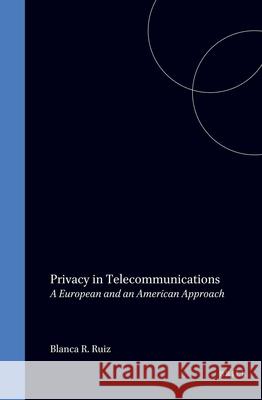Privacy in Telecommunications: A European and an American Approach » książka
Privacy in Telecommunications: A European and an American Approach
ISBN-13: 9789041102744 / Angielski / Twarda / 1997 / 376 str.
As telecommunications travel to and from satellites in space, they can be monitored - and often are - by crime prevention authorities and others with enabling technology. Inevitably, the laws of privacy and of space intersect. While privacy and the secrecy of telecommunications are widespread concerns of individuals, controlling telecommunications in order to prevent and fight crime is a pervasive concern of governments. The United States, Germany, and the ECHR have employed fundamentally different methods to approach this apparent dilemma. Using discourse theory as a theoretical framework, the author scrutinises these three systems and the effectiveness of the solutions they have employed. She proposes patterns of reasoning which outline the role that the secrecy of telecommunications plays in constitutional democracies and which help to overcome the strains that new technologies inflict on both the need to protect privacy and on the necessity to control telecommunications.











